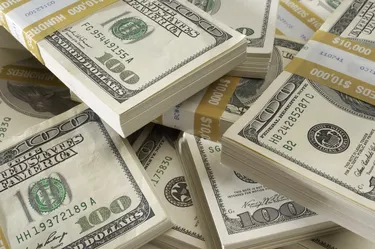
If you've ever had to write a will, buy home owners' insurance or handle a break-in or fire that damaged your home, you probably needed to create a list of your household assets. A list of household assets allows you not only to assess the value of the things you own (your "estate"), but also helps you plan how best to protect them.
Cash and Equity Assets
Video of the Day
A household's most available, or "liquid," assets are its cash and equity assets. These assets include the cash that you have on hand in the household, plus any bank accounts, retirement accounts, certificates of deposit, and savings bonds or other bonds you own. Equity assets also include the cash value of any life insurance you own.
Video of the Day
Investment Assets
Investment assets include financial instruments or certificates held as investments, such as publicly traded stocks; pooled investment funds, such as mutual funds or investment clubs; personal annuities; and family trusts. The value of these assets generally varies, since the value of individual stocks or other investments fluctuates with the markets.
Real Estate
A household's real estate assets include your primary place of residence. Real estate assets also include the equity you own in any other real estate, such as rental or commercial property. The value of these assets is based on your equity in them rather than their full market price.
Vehicles
Your vehicle assets include cars or trucks, boats, motor homes or motorcycles. Mobile homes are also licensed as vehicles rather than real estate. The value of your vehicle assets is based on their current market value, which generally decreases over time.
Other Tangible Assets
Other tangible household assets referred to as real estate or items of value are jewelry, artwork, precious metals, antiques or valuable collections of coins or stamps. All these items are considered in evaluating your assets for insurance purposes. Although generally worth little, ordinary household contents are also tangible household assets.
Other Intangible Assets
You may also own other intangible assets, such as your equity in a private business, valuable contracts, mineral rights, oil and gas leases or unpaid debts that you are owed.